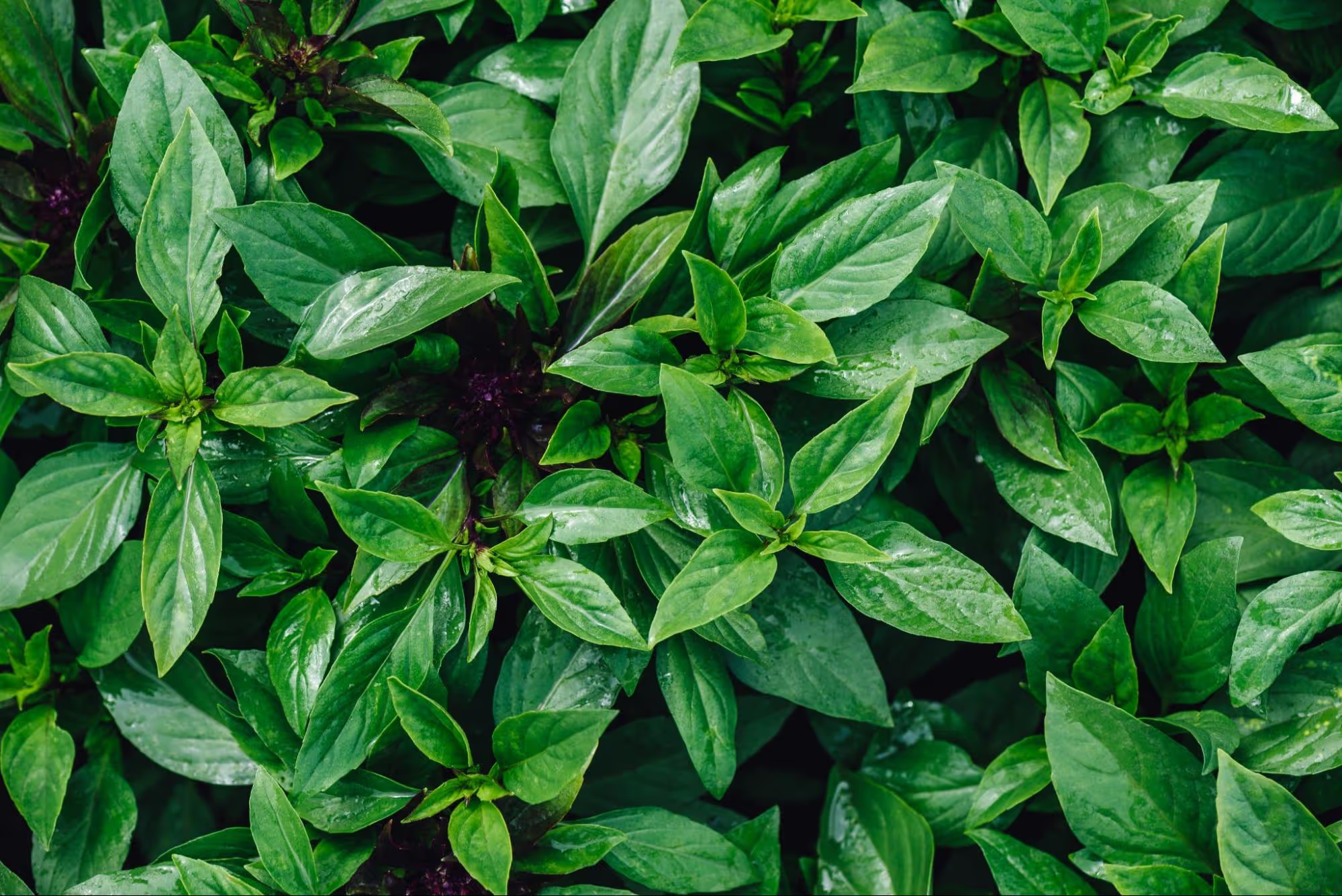
For healthy and robust growth, proper fertilization is crucial for Thai basil, enabling the plant to develop its characteristic aromatic leaves and rich essential oils. To reach its full potential, it is essential to provide nutrients that stimulate rapid growth, particularly during periods when the plant is actively growing and producing its recognizable fragrant leaves. High-quality fertilization, rich in nitrogen, phosphorus, and potassium, plays a key role in ensuring that Thai basil is healthy, robust, and ready for use in various culinary delicacies.
Thai basil requires fertile, well-drained soil enriched with nutrients for optimal growth and development. To achieve healthy growth and a high-quality harvest, it is crucial to provide proper fertilization that meets the plant’s nutritional needs.
The most important elements for the healthy growth of Thai basil include:
Several types of fertilizers are ideal for promoting healthy growth and development of Thai basil, each offering specific benefits:
Fertilizing Thai basil should be done regularly during the growing season, which includes spring and summer. The following tips can help ensure proper and efficient fertilization of this plant:
During winter, when Thai basil enters its dormant phase, especially if grown indoors, fertilization is not needed in large amounts. It is recommended to reduce fertilization to a minimum during this period to allow the plant to recover and conserve energy for the next growing season. This approach helps the plant survive the colder months while preparing for active growth when spring arrives.
A regular and properly balanced fertilization regimen not only promotes the growth of Thai basil but also improves its immune system, increasing its resistance to diseases and pests, thereby enabling a richer and healthier harvest. However, it is important to monitor the plant’s condition and be aware of potential signs of over-fertilization, such as yellowing leaves caused by excess nitrogen, as this can negatively affect the plant’s health and growth. Proper fertilization helps maintain balance and ensures the long-term vitality of the basil.
Proper fertilization is crucial for the healthy growth of Thai basil, the richness of its aromatic leaves, and the development of its essential oils. Using high-quality fertilizers, such as compost, liquid fertilizers based on algae, and organic fertilizers for herbs, can ensure that the plant receives the necessary nutrients to stimulate its vitality and resilience. Furthermore, maintaining the proper fertilization frequency during the growing season and reducing fertilization during winter dormancy helps maintain balance. Regular monitoring of the plant’s condition and adjusting the fertilization regimen ensure the long-term health of Thai basil, leading to a rich and high-quality harvest.